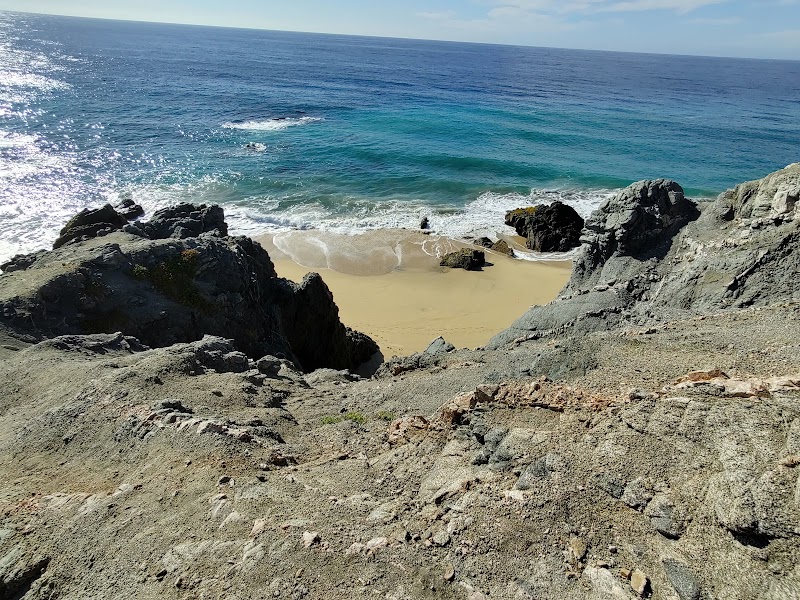Wildlife Wonders Near Cabo San Lucas: A Practical Guide to Baja California Sur’s Natural Treasures
Discover the rich and diverse wildlife that thrives around Cabo San Lucas, from marine giants to desert dwellers. This guide offers practical tips and key insights to help you plan an unforgettable outdoor adventure in Baja California Sur’s wild landscapes.
Stay Hydrated on Desert Trails
Carry at least 2 liters of water per person on hikes near Cabo, as the semi-arid climate quickly depletes hydration.
Wear Proper Footwear
Expect rocky, uneven terrain in desert and coastal hikes—choose sturdy hiking boots with good grip to prevent slips.
Timing is Key for Wildlife Viewing
Plan visits between December and April for whale watching and spring months for bird migration to maximize animal sightings.
Respect Wildlife Boundaries
Keep safe distances to avoid stressing animals; use binoculars or zoom lenses for closer observation.
Wildlife Wonders Near Cabo San Lucas: A Practical Guide to Baja California Sur’s Natural Treasures
Explore the Wildlife Near Cabo San Lucas: Your Gateway to Baja California Sur’s Natural Thrills
Cabo San Lucas offers a frontier of wildlife encounters where desert meets sea in Baja California Sur. This vibrant region invites adventurers to witness creatures flourishing in a setting fiercely shaped by land and ocean. From the splash of whale breaches in the Sea of Cortez to desert iguanas warming under the Baja sun, wildlife near Cabo holds stories of survival and spectacle.
The best way to experience wildlife near Cabo San Lucas is through focused excursions and outdoor activities such as snorkeling, hiking in Sierra de la Laguna, and boat tours to observe marine mammals. Key species like humpback whales, sea turtles, pelicans, and the elusive bighorn sheep populate these diverse habitats, making it a hotspot for wildlife enthusiasts.
To ensure a successful and immersive wildlife experience near Cabo San Lucas, practical preparation is key. Choose sturdy hiking boots for rocky desert terrain, carry sufficient water to stay hydrated during hikes, and consider the timing of your visit. Whale watching peaks between December and April, while spring blooms attract soaring bird populations.
Experience the raw beauty of Baja’s wildlife with an eye trained on preservation. Respect the fragile ecosystems and maintain a safe distance from animals. Wildlife viewing in Cabo San Lucas balances thrill with responsibility, offering unforgettable encounters for outdoor lovers and nature watchers. Dive into nature’s fierce vitality here, with each adventure revealing more of Baja California Sur’s compelling wild side.
Nearby Trips
All Adventures
Boat Charters
Water Activities
Adventures near Cabo San Lucas
Discover the unique and memorable adventures that make Cabo San Lucas special.
Frequently Asked Questions
What types of whales can I see near Cabo San Lucas?
The region is famous for humpback and gray whales, typically visible from December to April as they migrate along Baja’s coast.
Are there guided tours for wildlife viewing?
Yes, local operators offer boat trips, snorkeling excursions, and desert hikes focused on wildlife observation with expert naturalists.
Where can I spot desert animals like bighorn sheep?
Sierra de la Laguna mountains near Cabo San Lucas host bighorn sheep along rugged trails; dawn or dusk are optimal times for sightings.
Is it safe to swim with marine wildlife in the area?
Swimming is generally safe in designated snorkeling zones, but always follow guides’ instructions to avoid disturbing animals or hazardous currents.
What are some less crowded places to watch birds near Cabo?
Estero San José del Cabo provides quieter birdwatching opportunities with various shorebirds and waterfowl seasonally present.
How should visitors minimize environmental impact during wildlife encounters?
Stick to marked trails, avoid feeding wildlife, maintain a respectful distance, and carry out all waste to preserve these habitats.
Recommended Gear
Hiking Boots
Protects feet from sharp rocks and uneven ground during desert and coastal hikes.
Wide-brim Hat
Shields face and neck from intense sun exposure on exposed trails.
Binoculars
Enhances distant wildlife viewing, especially for marine mammals and desert birds.
Lightweight Layered Clothing
Adjusts to temperature changes, winds, and early mornings or evenings.
Local Insights
Hidden Gems
- "Playa del Amor for sea lion viewing"
- "Estero de San José for birdwatching"
- "Sierra de la Laguna’s less-traveled trails"
Wildlife
- "humpback whales"
- "bighorn sheep"
- "desert iguanas"
- "sea turtles"
- "pelicans"
History
"The indigenous Cochimí people once inhabited this region, with historical sites scattered near the mountains and coastal areas."
